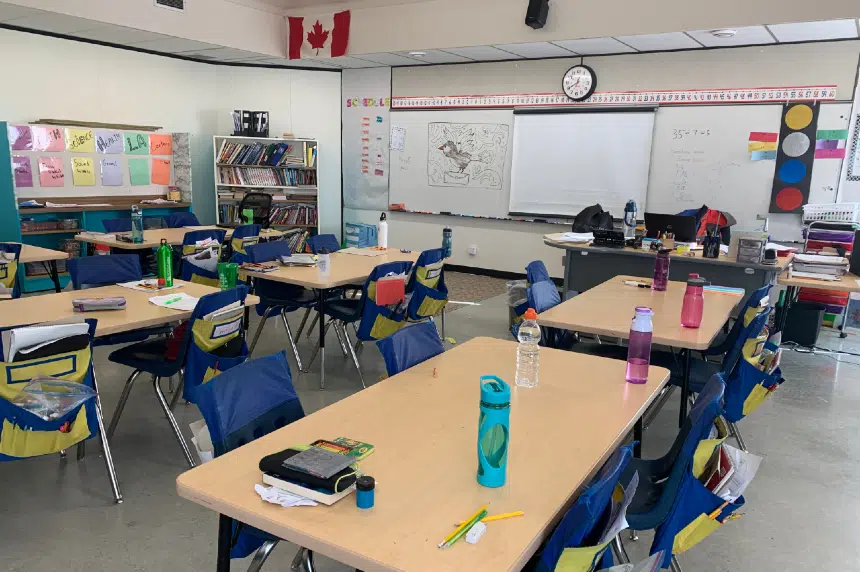With COVID-19 case numbers growing in Saskatchewan schools, the province said school divisions will be tasked with adjusting to Omicron.
The latest COVID-19 variant is everywhere in Saskatchewan, according to the province’s chief medical health officer, Dr. Saqib Shahab. His comments came after Regina Public Schools reported COVID cases in 40 of its schools over the weekend.
According to Kevin Gabel, executive director of the programs branch with the Ministry of Education, school divisions are working with their local medical health officers (MHO). The province is leaving it to schools to make the “best decisions” under MHO guidance.
“They’re in that best position and I know they’re doing a great job of it,” Gabel said.
He explained that one school had redeployed high school staff to an elementary school to help out after classes went online.
Regina Public Schools has also announced that high school students will have three days of online learning into next week leading up to final exams.
“They made the decision to try and limit the spread of COVID as much as possible,” Gabel said during a media briefing Tuesday.
Later in the day, Regina’s public division announced eight classrooms at seven elementary schools also were moving to remote instruction starting Wednesday.
“I think at this point, what we are seeing is not unexpected,” Shahab said on the situations facing schools.
“At a societal level, it’s important for children to be in school,” Shahab explained, adding many parents depend on having their children in classes to be able to go to work.
He said transitioning online for high school students can be less of a disruption for parents and their work schedules because teenagers typically do not require a parent to stay home with them during the day.
“And (they) hope students are studying hard during the three days of remote learning to prepare for their end-of-term assessment,” Shahab said.
Gabel defended the province’s decision to continue with in-person learning as much as possible in Saskatchewan.
“We are aware that there will be disruptions due to COVID (and) due to staff absence,” Gabel said. “But we do believe that in-class learning is the best way to go forward due to the mental health of students.”
Shahab added challenges will continue and schools will have to manage those challenges “in terms of having enough staff to keep in-person learning, which continues to be the best way to continue to learn for schoolchildren.”







